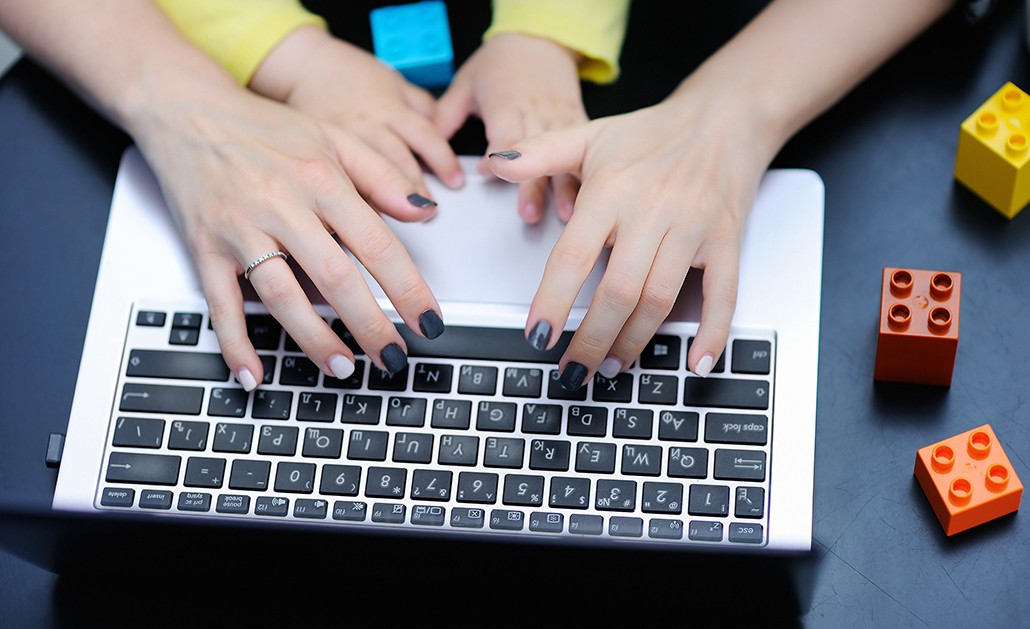
The novel coronavirus has upended daily life for millions of parents across the United States. Photo by iStock.
The novel coronavirus has upended daily life for millions of parents across the United States.
COVID-19 has caused more than 100,000 schools to close for the rest of the academic year and forced scores of businesses to tell their employees to work from home, compelling moms and dads to juggle full-time jobs and childcare for an indefinite period of time.
“When your kids are at school, you’re able to use your brain space to work,” says Carolyn Romano, a mental health expert at Boston College. “But when you’re all in the same house, stressed out, and competing to use the computer, it becomes a complicated situation.”
More than 55 million students in grades K through 12 have transitioned to learning from home to slow the spread of the coronavirus, according to a tally maintained by Education Week. And 88 percent of parents who have children under the age of 18 told the Kaiser Family Foundation that the coronavirus has disrupted their lives.
“Work-life balance is out the window,” says Romano, a part-time faculty member in the Boston College School of Social Work who teaches in the children, youth, and families field of practice. “We can’t give 100 percent 24 hours a day and that’s what we’re being asked to do.”
Create a flexible routine
To make the most of the lockdown, Romano advises families to create flexible routines that provide parents and children the time and space to work independently. Parents who need to make work calls, Romano says, should tell their children how long they will last and provide activities that the kids can do to pass the time.
Romano recommends parents do not create hour-by-hour schedules for their children, especially if work will prevent them for keeping their kids on track.
“Routines help us control what we can control,” says Romano, who provides psychotherapy to individuals and families in her private practice. “But recreating school schedules seems far-fetched for most families if people are working.”

Carolyn Romano, a part-time faculty member in the School of Social Work.
Take care of yourself
Romano says that parents who suffer from stress caused by the coronavirus will not reach their full potential as caregivers.
She encourages parents to relax by doing things that they enjoy. That might mean watching a funny TV show, going for a run, or taking a long, hot shower.
“Don’t let your brain wander to what if’s,” she says. “Feel the hot water on your body, be in a mindful space, and take it down a notch.”
Romano emphasizes the need to exercise during the pandemic. “Moving your body is important,” she says. “Go for a walk, ride a bike, or do yoga.”
Let the kids play
Romano says that it’s OK for parents to loosen the restrictions on the amount of time their children spend staring at TV screens, laptops, smartphones, and tablets. But, she says, parents still need to set limits and ensure that their children do not slip into a sedentary lifestyle.
“Loosen up on those reigns, but make sure children are moving their bodies and being creative,” she says.
Parents should give their children choices to make them feel as though they have some power over what they do. “You can watch TV for an hour now,” Romano suggests parents tell their children, “but after that you can go for a walk with me or play with the dog in the backyard.”
Plan family activities
Romano advises parents to find ways to connect with their children every day. She recommends parents take breaks from work to go on 15-minute walks with their kids and help to plan family meals.
“Here’s what we have available for dinner,” Romano suggests parents tell their children. “What should we have and who can help?”
Romano encourages parents who are struggling to balance work and childcare to look for help online. She recommends parents check out the website for the Child Mind Institute, a nonprofit that’s compiled a compendium of resources to support families during the pandemic.

